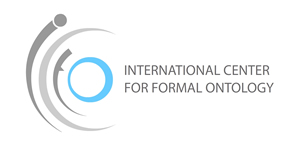Idea and mission
Mathematics provides a rich arsenal of scientific methods. Topology is a fundamental theory of modern mathematics that may be characterized as a generalization of classical geometry. A first hint that topology may play a central role as a method of philosophy is the fact that “spatial jargon” permeates virtually all of our cognitive enterprises to an ever-increasing degree. This holds not only for the classical empirical sciences, such as physics, but also for psychology, the cognitive sciences, and even philosophy itself, as evidenced by the many types of “state space”, “phase space”, “logical space”, “conceptual space”, “ontological space” and “space of possible worlds” that show up in diverse areas of knowledge today.
A basic hypothesis of the group is that this “spatial talk” should not be dismissed as “purely metaphorical”. Rather, it points to the fundamental role that space (and therefore topology as a general theory of space) plays in all our cognitive enterprises. Ultimately, the importance of the spatial may be seen as being grounded in the fact that the world in which human beings live and act is a spatio-temporally structured one.
Geometry has played an important role in philosophy ever since the time of Plato. Concepts borrowed from geometry, such as space, shape, size, continuity, proximity and transformation, have been and remain an indispensable ingredient in many philosophical considerations, as can be seen from such central areas of philosophical concern as ontology, epistemology and semantics. Starting with the advent of Non-Euclidean geometries in the 19th century, classical geometry as a mathematical discipline has undergone an immense generalization and expansion: one that has elevated it – under the name of topology – to being one of the most important and actively researched areas within modern mathematics. It is our assumption that topology – as the contemporary form that geometrical inquiry has taken on – possesses a relevance for questions of contemporary philosophy similar to that which geometry itself had for classical philosophy.
Recognizing topology explicitly as a source of methods for philosophy, and particularly for ontology and metaphysics, is bound to influence our basic understanding of these philosophical disciplines: the task of a mathematical metaphysics and ontology can no longer be conceived of as that of establishing, once and for all, an unshakable foundation for these disciplines. Rather, it will be to elaborate the conceptual possibilities of these philosophical domains. Mathematization aims at a comprehensive extension and deepening of our intuitive conceptual possibilities. This is in line with a basic feature of topology as part of modern mathematics: namely, that it aims to engage with the notion of space as a protean concept that can be interpreted in multiple ways. Progress in philosophy is understood by us to consist in expanding the realm of conceptual possibilities.
Our efforts can also be described in slightly different terms: namely, with reference to a version of structuralism. Topological philosophy, we might say, is a mathematical modeling of the structures that show up in philosophy (ontology, epistemology, logic, philosophical anthropology, etc.) using topological structures and their various forms – such as are encountered in, for instance, algebraic topology or category theory.
Our research seeks to address, among others, the following areas:
1. topological aspects of part-whole relations (mereology, mereotopology);
2. the metaphysics of time, events and substance;
3. topological aspects of causality, possibility and necessity; process ontology;
4. the topology of identity, similarity and change;
5. qualities, forms and universals;
6. problems of determinism/indeterminism;
7. topological explanations in science;
8. topology in physical theories (especially both classical and quantum mechanics);
9. point-free approaches in mathematics, physics and metaphysics;
10. other spatial issues arising in philosophy generally.
